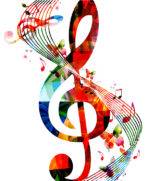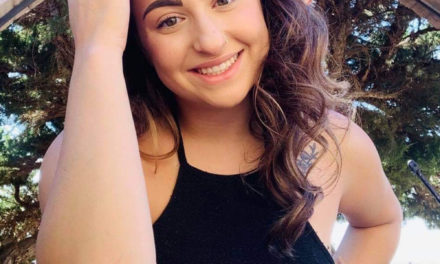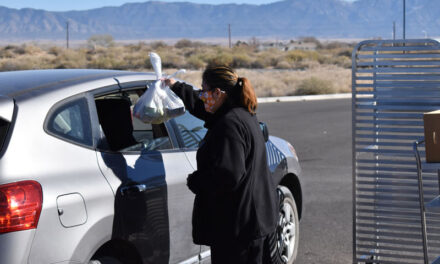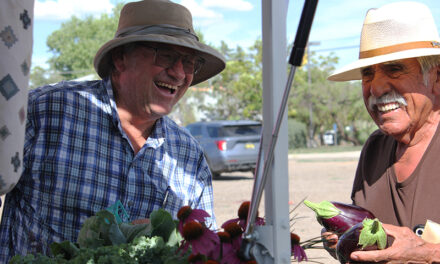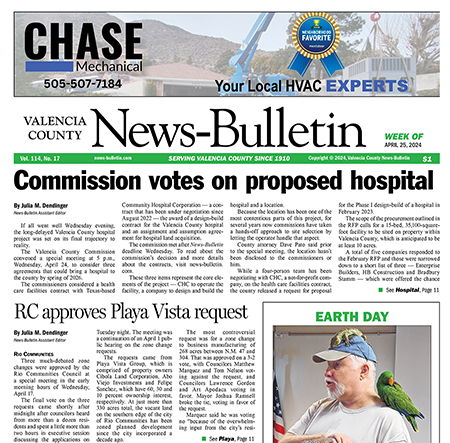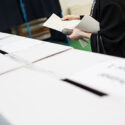
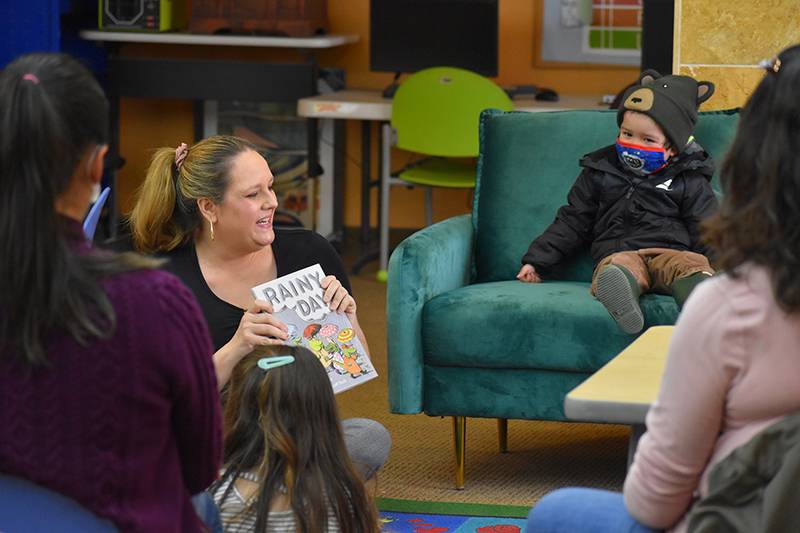
Makayla Grijalva | News-Bulletin photo
Belen Children’s Librarian Summer Lugwig reads to a group of young children during Tuesday’s Storytime program, while Mason Maldonado, 3, listens intently.

While every child progresses at their own pace, Belen Children’s Librarian Summer Ludwig said there are five things to practice with your little ones to get them ready to read — singing, reading, talking, playing and rhyming.
“Those are the things I think are really important and you can do them all of the time without really having to put a ton of thought into it,” Ludwig said, “especially, when they are really young, you might not think about it, but just narrate what you’re doing.
“Just talking to your babies. Let them know what’s happening and make sure as you are going through your day, you’re just checking in with them.”
Still, Ludwig stresses the importance of not comparing your children to others their same age since every child learns differently and at their own rate.
However, with consistent practice of the five skills, most children will be able to write their name, say and understand the alphabet, understand that letters make up the words, and the mechanics of reading.
“I always encourage, if you have any concerns, to just have your child evaluated first so you understand where they are,” Ludwig said. “Because your own anxiety will transfer to your child if you don’t have that addressed. Your concerns might be warranted, but they also might not.”
Some children might even be able to identify and read certain sight words, however reading by kindergarten is not a must-have for students.
“If they aren’t (reading) and you are working with them, that’s going to be OK because they will still have that base,” Ludwig said.
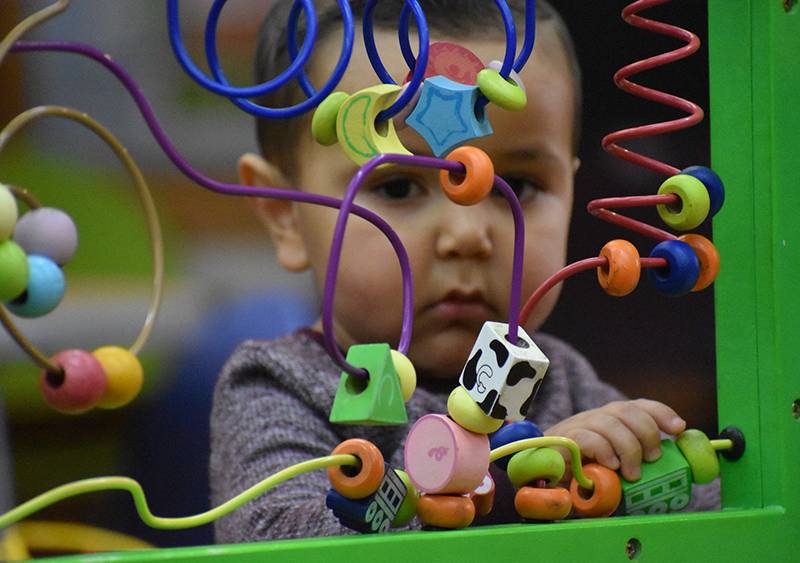
Makayla Grijalva | News-Bulletin photo
Marcus Tabot, 19 months old, plays with the bead chaser during Storytime at the Belen Public Library. This was Tabot’s first Storytime at the Belen Children’s Library.
Importance of music and early literacy
While singing is important to practice regularly with babies and toddlers, music generally can be used as a tool to help young children reach other important milestones as well, Ludwig said.
“Music is really important because children connect to it really easily,” she said. “It’s fun and it’s engaging, but also things like steady beats help not only with early literacy, but it’s also been shown to help with finding gross motor skills.”
Music can help kids learn to walk since the practice of steady beats stimulates the same part of the brain as walking and other motor functions. Ludwig also advised that while narrating your day, you could also include music in the narration by putting the words to a tune.
“Kids love music, so anything that you put to a tune, makes it more fun and stimulates their brain in a different way,” the local librarian said.
Ludwig said the Belen Public Library utilizes music in its programs in different ways, such as during story time. However, the main use is through the hello and goodbye song sung at the beginning and end of each of the programs hosted by the children’s library.
The repetition of the song will help the children solidify the skills learned during the program.
Music and movement, hosted by the Belen Children’s Library at 11 a.m. every Saturday, for children ages 0 to 6, uses music, musical instruments and steady beats to help young children garner the skills needed and lights up the same part of the brain as early literacy.
Continuing literacy skills after school
Ensuring a child has a lifelong love of reading doesn’t end after they get into a classroom.
Ludwig encourages parents and guardians to keep up with what their child is learning in school by going online, seeing their assignments, taking a look at their homework, and what they are
reading.
“If they are a good reader and they enjoy reading and they read at home with their parents, then that’s going to help them in every single subject,” said Ludwig, adding no matter what, the student is learning in school, reading is the foundational post on which they are building.
As schools and the general world continue to integrate technology into learning, Ludwig stresses the importance of continuing to encourage your young children and students to read physical and bound books so the mechanics of reading aren’t lost.
“Screens are great for things … I mean my kids have iPads and things, too, but especially for early literacy it’s so important to know how to read a book — the order to read the words, left to right, up to down. That’s one of the really core concepts and you don’t necessarily get that if you are using a screen,” she said.
Ludwig advised parents to bring their children to the library so they can experience real books, or even begin building personal libraries at home.
Resources for parents
There are many places for parents to go for resources concerning early literacy, Ludwig said, pointing to both the Belen Public Library website, and herself as the ones that immediately come to the top of her head.
“The libraries are really good resources because we just get so much information,” Ludwig said. “I know a lot of times people don’t know what all we have access to, but we have so much. We can get you information on almost anything.”
She added schools and teachers would also have information and resources to improve literacy with children at home.
The Belen Children’s Library also offers three different programs geared towards increasing literacy for children — Storytime on Tuesday, Crafty Kids on Wednesday, and Music and Movement on Saturdays. All programs begin at 11 a.m. in the children’s wing of the Belen Public Library.

PAID ADVERTISEMENT: Click the ad above to learn more about our Lessons for Living series sponsor, Nusenda Credit Union
Makayla Grijalva was born and raised in Las Cruces. She is a 2020 graduate of The University of New Mexico, where she studied multimedia journalism, political science and history.
